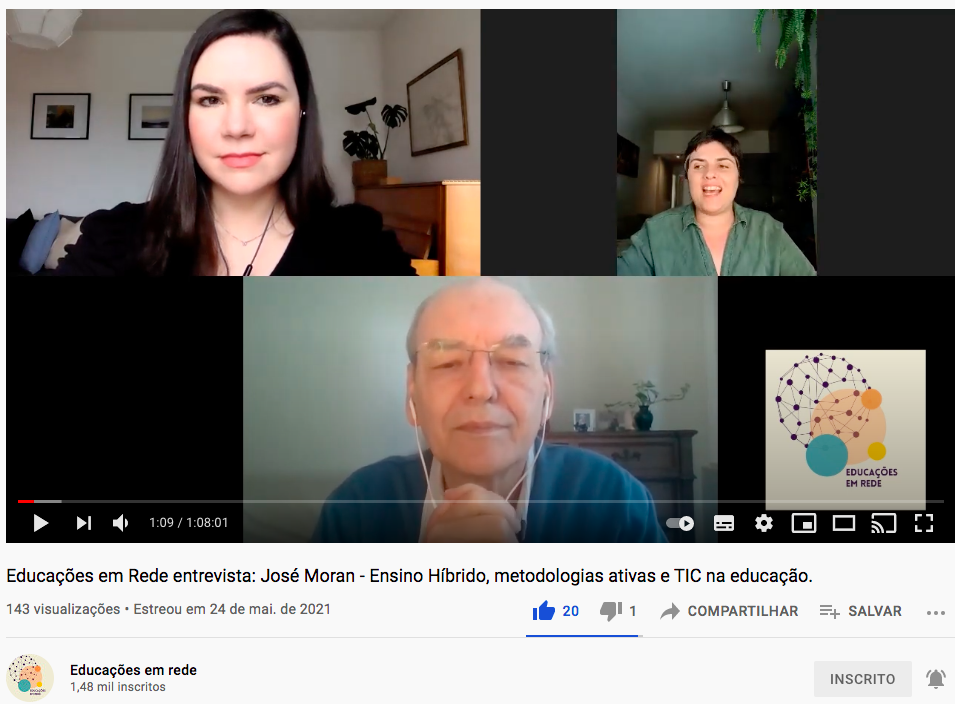
Photo by Nothing Ahead from Pexels
***For better accessibility, HERE is the audio from my blog post.
I wouldn’t be able to say the most important thing I learned in this course because there were so many. I’m certainly not going to leave this course the same way and with the same mentality that I had when I joined this course. I think that’s exactly what a good course does: change!
Just as technology changes all the time, education must be constantly changing in order to make the best use of technologies in its favor, in a critical and reflective way, while taking into account the human beings involved and their subjectivities. The one of the biggest reasons for me to be enrolled in this course is to learn how to improve my own pedagogical practices using the potential of technologies for collaborative, effective and meaningful learning.
Although I have already taken many courses on online learning, ICT in education and so on, I confess that this course was a milestone for my evolution as an educator and as a student as well. In my opinion, the course was extremely well organized and planned on a learning path that makes perfect sense for the students and is fully aligned with the learning outcomes of the course. I got to see Salmon’s five-stage-model in action all the time during the course. I could also see an alignment between the content learned and the reality education of this time, that is, the course is fully suited to today’s needs but also allow us on thinking about how we can do better in the future.
I confess that I panicked a little bit in module 3 because of so many readings at the same time but I finally understood that the teachers would not want to waste such interesting and important bibliographies (I will certainly review these readings sometime in the future). So I am very grateful for all the work of searching for high quality references that the teachers did to help us in the foundation of the practices for online collaborative teaching.
The interactions with colleagues, both in the comments of blog posts and during synchronous meetings have always been very constructive (although I think that in synchronized meetings, sometimes there was no time to deepen and develop more work in the pressure to summarize in the main group). But despite the little time together, I was able to realize the potential of a research and collaboration community in action at many times.
This course allowed me also to revisit some concepts already known but with new perspectives, new authors and new ideas from the discussions with colleagues in the seminars. The course also allowed me to reflect on new practices that will certainly serve as a guide for a next opportunity as a teacher and made me realize the importance of taking into account the teaching presence (quoting Vaughan et.al. (2013)).
This course also made me realize that the time spent in planning and thinking about the design of a course that intends to be 100% online or blended is something extremely crucial for effective collaborative learning.
I can’t wait to put into practice everything I learned in this course and I hope to be able to have more courses like this in the future, that broaden my perspectives and that provoke me to change and be more creative in the design of educational content and in the development of courses plans.
I thank all the effort and empathy of teachers Nathalie and Annette during this course and also to my dear colleagues who are always warm and receptive to collaboration.
*************
27/05/2021
During this course and during this amazing learning process, as I became very motivated with the themes and readings. So, two weeks ago, together with my colleague Fernanda from Portugal, (who is also part of the Group “Education in networking“) , we decided invite and record an interview with a professor at the University of São Paulo called José Moran. He is very famous in Brasil for his work in the field of hybrid/blended education, active methodologies and new technologies in education.
In this interview, Professor José Moran tells us a little about his vision about hybrid teaching, the active methodologies and the use of educational technologies, as well as a great reflection on the importance of transforming individuals so that institutions and society can be transformed in the sense of using technologies for the benefit of learning. He also talks about the importance of personalized teaching, which makes sense within the trajectory of each student, as well as reflecting on the challenges for teacher training in Brazil for the use of technologies.
Here is the link to the video that although it was recorded in Portuguese, the subtitles are in English.

🙂



